In the mid-2000s, the Seattle Hip Hop scene had a revolving door of young white rappers who idolized and imitated the golden age of boom-bap. Despite the then-recent rise and unprecedented popularity of Eminem — who similarly was, and still is, a massive rap nerd with great respect for the genre — the idea of local rap acts like Scribes, Grynch, or Macklemore achieving national fame wasn’t something most people considered a possibility. Macklemore himself didn’t see ubiquitous mainstream success in his future, stating on the Armchair Expert podcast that he saw his ceiling as being able to make a simple living from his music and touring 500-cap rooms.
But even back then, Macklemore set himself apart from the slew of faceless Slug imitators because he could actually rap. By 2006, he was popular enough in the Pacific Northwest to have his name on the same poster as Kanye West and A Tribe Called Quest for Seattle’s Bumbershoot music festival. It seemed like he was well on his way to achieve that dream of playing 500-cap rooms, but soon after faded into a brief obscurity while he battled drug addiction, eventually ending up in rehab in Canada. We all know how the story goes from there: number one singles, unexpected Grammys, and text message apologies to Kendrick Lamar posted on Instagram.
Addiction is often described as cyclical, and Macklemore’s recent absence and the release of Ben, his first album in over five years, mirrors this. Macklemore relapsed again during his five year hiatus, but the pandemic was the main catalyst for the delay in music. On Ben, it’s easy to tell how deeply this affected his psyche, especially considering this relapse occurred after he became a father. Unsurprisingly, the songs that deal with his addiction are some of the best of his career.
“Faithful” feels like a glimpse into Macklemore’s raw, unfiltered thoughts. He ruminates on the passing of Mac Miller, the guilt he feels about relapsing as a father (“Zonin’ on the couch, starin’ at my daughters/Know there’s a pill in this house that I’m obsessin’ about poppin’/Reservations talkin’, the push and pull of the conscience/Should probably pick up the phone and call my sponsor, but don’t wanna”), and even the possibility of suicide. The second verse has NLE Choppa playing the unlikely role of Macklemore’s sponsor. Known for his aggressive, rapid-fire delivery, Choppa takes a smoother, more reserved approach to the song, where he offers encouragement and relates to Macklemore as a father, reminding him how much his daughters need him, rapping “Heard you got a daughter, well, I got one too/And she too beautiful, barely see her too….Before you load that gun and shoot/Just know that she be needin’ you, the best version of you too.”
Macklemore is a dexterous rapper at his best, but the songs that showcase his talents are mostly confined to the middle of the album. Rap takes a backseat for the first third of Ben, with songs like the synth-pop oriented “1984” feeling instantly dated rather than nostalgic or retro. Likewise, “Maniac” and “No Bad Days” might as well have been plucked from 2011, the latter of which falling dangerously close to being under the umbrella of “stomp clap hey” music (think Mumford & Sons or The Lumineers). It takes far too long to get to the real meat of the album, such as “Heroes” — an ode to 90s New York rap that features scratches from DJ Premier, and by far the greatest showcase for his talents as a rapper. It’s almost as if Macklemore is trying to trick your pop-loving aunt into listening to boom-bap by burying the lede.
When Macklemore touches on social issues, he often feels like the living embodiment of the Fresh Prince-derived “he a little confused, but he got the spirit” meme — that is to say, it’s clear he means well, but he frequently undercuts his messages by coming across as cheesy or overzealous. “Lost/Sun Comes Up,” for example, is a groan-inducing song about social media use where Macklemore laments that marketing in the rap biz now requires TikTok views instead of Funkmaster Flex bombs and wonders which celebrities will tweet “R.I.P.” when he dies. It feels like a middling Substack article in musical form, with its content seemingly directed at phone-addicted Zoomers but fated to only be heard by people old enough to know what an RSS feed is.
Macklemore’s unabashed sincerity is both one of his greatest strengths and deepest pitfalls. You have to give him a little bit of credit for trying, but it’s difficult not to poke fun at him when the chorus to the aforementioned “Lost” is “Scroll (scroll), refresh (refresh), turn it off/Now do it again, that’s the dance now.” For a decent chunk of Ben, he directs this ever-present sincerity and eagerness to write songs about issues that are capital-I Important inward, focusing on his own life and struggles with addiction, and his music is mostly better for it. But despite some solid songwriting about addiction and mortality, Macklemore’s comeback album still experiences the same struggles with corniness and over-sincerity that torpedoed him from a household name to an afterthought, leading to a mixed bag that’s more admirable than actualized.

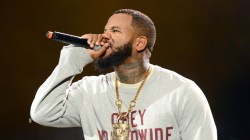
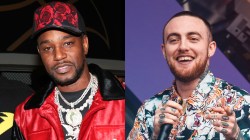
![Method Man Admits He Didn't Like Drake's "Wu-Tang Forever": "I [Wasn't] Getting On That"](https://hiphopdx.com/wp-content/uploads/2025/12/method-man-drake-wu-tang-forever-remix.jpg?w=250)
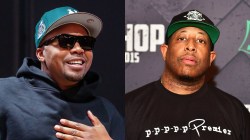
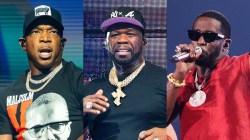
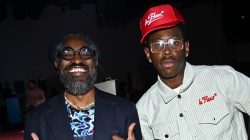

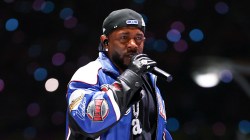
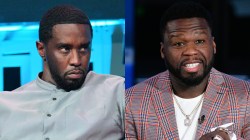
2.4 seems low to me, I’d agree that the album is kind of all over the place in that it’s 1/2 pop records and 1/2 rap records, which is a formula I don’t love. I’d say that the highs of the album are high enough to bring it to a 3.5. I’d love to hear a Mack album that sticks to a Heroes sound. I was hoping that’s what this would be, but it strayed pretty far from that.
damn…you need to write the reviews of HHDX! serious. you said more in that paragraph than the above!
Horrible album. The song Heroes with DJ Premier is fire, but the rest is trash
TRASH!!!
Ok. It’s really not THAT BAD. Give it a 3.3
Heroes was great, one of the pop songs really lifted my mood at work, other than that this is a album with zero replay value for me. Heroes goes straight into the playlist and i can’t be bothered listening through the album again to find that mood lifting pop song, it was good but not _that_ good.
He should hang up the mic. He gets worse with every album.
He sounds like Drake, and if Drake is the ‘goat’ I guess that would make Macklemore…the goat?
Gave him a 5 cause he white man!
Gave him a 5 cause he white man!
I like Macklemore. I also feel his music. On this album, Day You Die Ft. Sarah Barthel, Maniac Ft. Windser, No Bad Days Ft. Collett, and Grime (he killed this track) were great bangers on Ben. I have a mix show on FM radio in Cuenca, Ecuador. and I got him on repeat with a great response from the public. I guess it all depends on what the target market is listening to. I believe it can go far. 1984 is like a thing right now in Highschool and the University scene. #MassiveHits
I like Macklemore. I also feel his music. On this album, Day You Die Ft. Sarah Barthel, Maniac Ft. Windser, No Bad Days Ft. Collett, and Grime (he killed this track) were great bangers on Ben. I have a mix show on FM radio in Cuenca, Ecuador. and I got him on repeat with a great response from the public. I guess it all depends on what the target market is listening to. I believe it can go far. 1984 is like a thing right now in Highschool and the University scene.
I like Macklemore. I also feel his music. On this album, Day You Die Ft. Sarah Barthel, Maniac Ft. Windser, No Bad Days Ft. Collett, and Grime (he killed this track) were great bangers on Ben. I have a mix show on FM radio in Cuenca, Ecuador. and I got him on repeat with a great response from the public. I guess it all depends on what the target market is listening to. I believe it can go far. 1984 is like a thing right now in Highschool and the University scene.
I have a mix show on FM radio in Cuenca, Ecuador. and I got him on repeat with a great response from the public. I guess it all depends on what the target market is listening to. I believe it can go far.